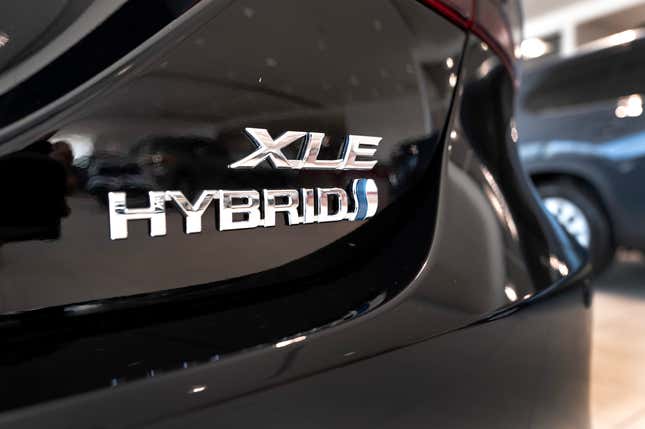
In This Story
Hybrid vehicles are all the rage right now, as American consumers look for cars that offer some of the environmental benefits of going electric, without relying entirely on battery power.
The share of U.S. consumers looking at buying a hybrid as their next vehicle rose 2% in Ernst and Young’s Mobility Consumer Index, a global survey of almost 20,000 consumers across 28 countries, which was released Monday. Twenty-one percent of U.S. consumers are considering buying a hybrid, according to the firm.
That, admittedly small increase, comes as interest in electric vehicles wanes. When EY’s survey came out in 2023, 48% of Americans were interested in ditching their gas-guzzlers for an all-electric car. A year later, that’s fallen 14 points to 34%, the first time that demand has dipped since 2020, according to EY Americans Automotive Leader Steve Patton.
“This decrease is due partly to a lack of consumer education around the long-term value of an EV and maintenance requirements vs. traditional ICE (internal combustion engine) vehicles,” Patton said in a statement.
The top deterrent for U.S. consumers was the high cost associated with replacing an EV battery, according to the survey. Although replacing an EV battery is relatively rare — they can last for up to 20 years — replacement costs outside of warranty can range between $6,500 and $20,000, according to Recurrent, which helps consumers buy and sell their electric cars.
Twenty-four percent of consumers were also worried about EV range — how far a car can be driven without recharging — and a lack of infrastructure, down from 30% a year earlier. Although the EV charging industry has made significant strides toward installing more charging stations across the U.S. and Canada — and most owners charge their cars at home — so-called range anxiety has been a persistent thorn in automakers’ sides.
About 26% of U.S. buyers said they like the security that comes with a hybrid engine, compared to 19% of global buyers.
“With many still hesitant to go all in with EVs, hybrids offer an ‘easier-to-swallow’ solution: the security of ICE with the advancements of EV technology and performance,” Raman Ram, a leader at Ernst and Young’s aerospace, defense, and mobility division, said in a statement.
Ram also pointed to the environmental benefits of owning a hybrid, at least compared to a gas-powered car. Over the life span of a car, or about 180,000 miles, an internal combustion engine produces about 73.4 tons of carbon emissions, according to The Seattle Times. Comparatively, a hybrid generates 53.6 tons of emissions, while an EV produces 38.7 tons of emissions.
Automakers — led by the undisputed king of hybrids, Toyota Motor Co. — have been increasingly eyeing hybrids as EV sales growth slows. Ford Motor Co. last month scrapped or delayed some plans for new EV models and added new hybrid vehicles to its planned lineup, citing a need to focus on affordability. Kia America, Hyundai Motor America, and American Honda Motor also posted strong sales numbers for August, partially thanks to hybrid sales.